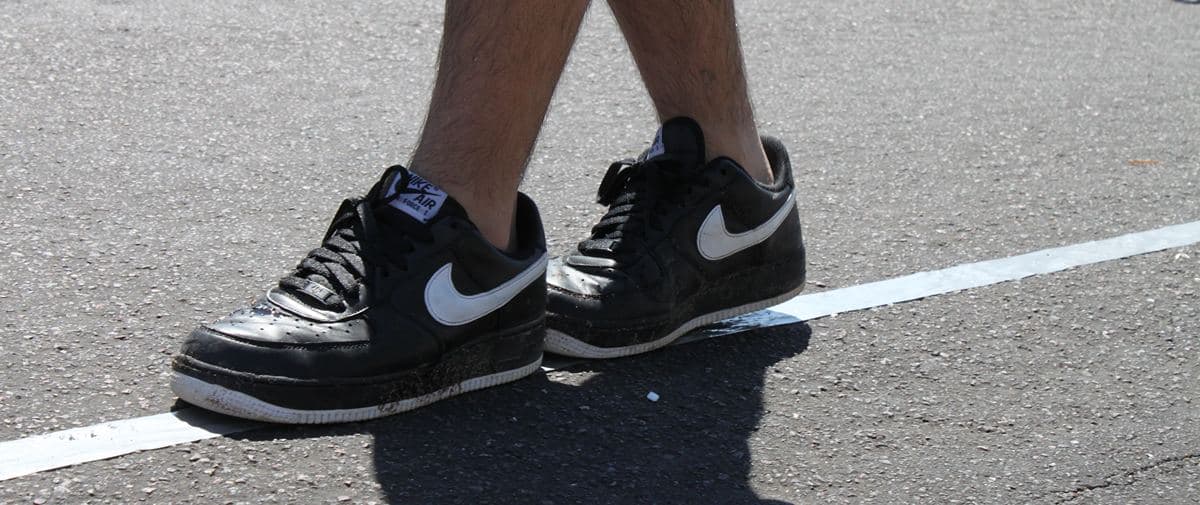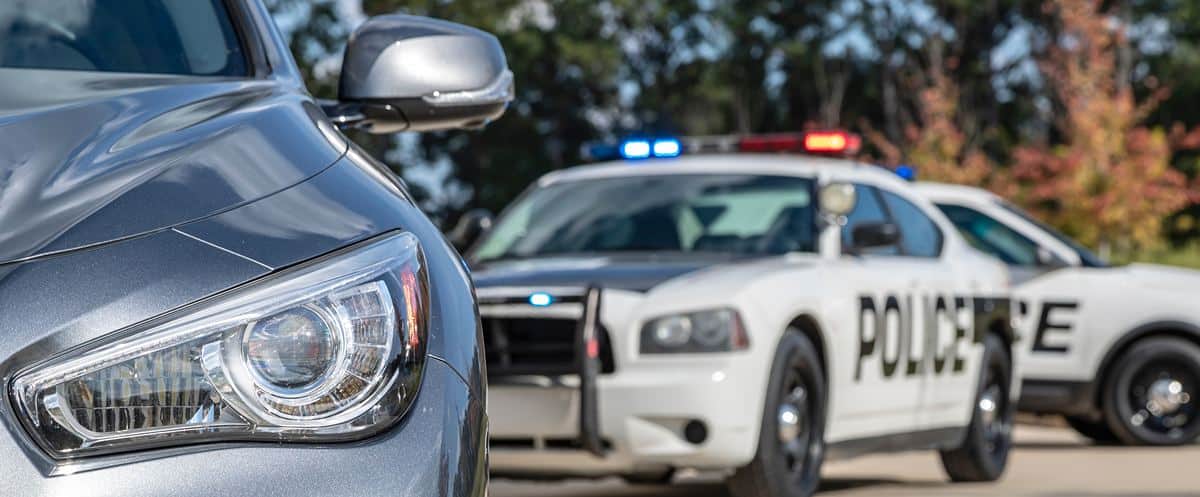Field Sobriety Tests in Arizona
Driving under the influence of alcohol or drugs is a serious offense. According to Arizona Revised Statute 28-1381, driving with a blood alcohol content (BAC) of 0.08% or higher is illegal.
You may be asked to take a field sobriety test (FST) if you’re suspected of DUI.
Field sobriety tests are used to determine if a driver is impaired and to build probable cause for a DUI arrest.
But whether these tests are accurate and reliable enough to tell if someone is impaired is unclear. This article will explore Arizona’s types of field sobriety tests, the legal defenses that can be built from them, and whether you should take one when stopped.

Types of Field Sobriety Tests in Arizona
Arizona law enforcement uses three standard field sobriety tests that are approved by the National Highway Traffic Safety Administration (NHTSA).
These tests are:
- Horizontal Gaze Nystagmus Test – In this test, an officer will ask you to follow a moving object, like a pen, with your eyes while keeping your head still. The officer is looking for involuntary jerking of the eye, which can indicate intoxication.
- Walk and Turn Test – In this test, an officer will ask you to take nine heel-to-toe steps along a straight line, turn on one foot, and take nine steps back. The officer is looking for balance issues and an inability to follow directions.
- One-Leg Stand Test – In this test, an officer will ask you to stand on one foot for 30 seconds. The officer is looking for swaying, hopping, or putting the foot down to maintain balance.
Legal Defenses for Field Sobriety Tests
While field sobriety tests are intended to detect impairment, they can also be used to build several legal defenses.
It’s important to remember that field sobriety tests are subjective and heavily depend on the officer’s judgment. Therefore, any mistakes or inaccuracies in administering the tests can be used to build a defense.
Some of the legal defenses that can be built from field sobriety tests are:
- Improper Administration of the Tests – The standardized field sobriety tests require specific instructions and conditions to be followed by the officer administering the test. Failure to follow these instructions and conditions can lead to inaccuracies and false positives. For instance, if an officer fails to provide proper instructions, the test subject may not understand the test requirements, leading to an inaccurate result.
- Medical Conditions or Physical Limitations – Medical conditions or physical limitations can also affect the results of field sobriety tests. For instance, a person with a medical condition that affects their balance may not be able to perform the Walk and Turn or One-Leg Stand tests accurately. Such conditions can lead to inaccurate test results; therefore, a defense can be built based on these factors.
- Environmental Factors – Environmental factors such as weather, lighting, and road conditions can also affect the accuracy of field sobriety tests. If the road is slippery or uneven, it may affect a person’s balance and coordination, leading to inaccurate test results.
- Inherent Unreliability of Field Sobriety Tests – Some argue that field sobriety tests are inherently unreliable due to their subjectivity and the lack of scientific evidence supporting their accuracy. Therefore, a defense can be built based on the argument that the test results cannot be relied upon to prove intoxication.

Should You Take a Field Sobriety Test When Stopped?
If you are stopped for a suspected DUI in Arizona, you can refuse to take a field sobriety test. However, it’s essential to understand the potential consequences of refusing to take the test.
If you say no, you could get extra charges, such as having your license taken away automatically for one year, and the fact that you said no could be used against you in court.
Therefore, it’s essential to consider the potential consequences of refusing to take the test. Keep in mind, just by refusing a breathalyzer and/or field sobriety tests, that doesn’t mean the officer will let you go. A blood test will be mandatory.
On the other hand, if you decide to take the test, it’s important to remember that the test results can be used as evidence against you in court. If you believe you may fail a field sobriety test due to a medical condition, a physical limitation, or other factors, it may be in your best interest to refuse the test.
What Happens if You Refuse the Field Sobriety Tests?
Refusing to take a field sobriety test in Arizona can have serious consequences.
When you refuse to take the test, the officer may issue an Admin Per Se document, which is a legal document that notifies you that your driver’s license will be suspended in 15 days.
The Admin Per Se document acts as evidence against you in court and can be used to prove that you were driving under the influence of alcohol or drugs. If you wish to contest the suspension of your driver’s license, you must request a hearing within 15 days of receiving the Admin Per Se document.
Remember that you have the right to talk to your DUI defense lawyer if you get stopped by the police. They can help you understand what you can and can’t do and suggest what to do.
If you decide to take the field sobriety test, your lawyer can explain what could happen next and help you defend yourself. If you decide not to take the test, your criminal defense attorney can help you with the steps you need to take and help you protect yourself.
It’s important to remember that you can talk to your lawyer as soon as you can after being stopped for drinking and driving.
Get Help From a DUI Defense Attorney

If you were charged with a DUI in Arizona, you should contact an experienced defense lawyer at the Shah Law Firm.
DUI defense attorney Arja Shah has many years of experience defending those charged with a DUI and has successfully represented over 3,000 clients.
Call to schedule a free consultation at (602) 560-7408 to get to work and defend your rights immediately!
